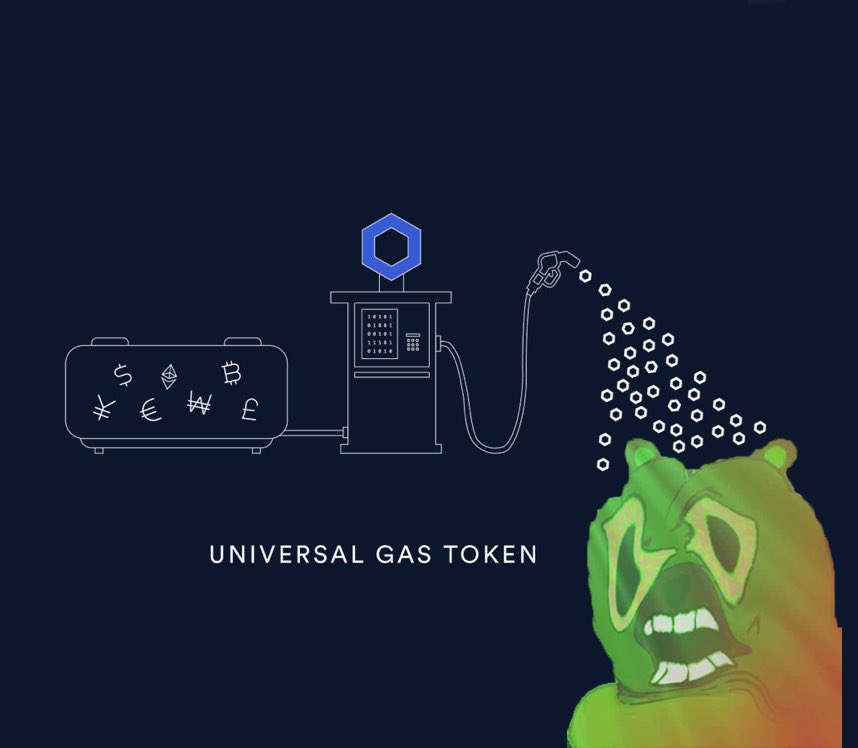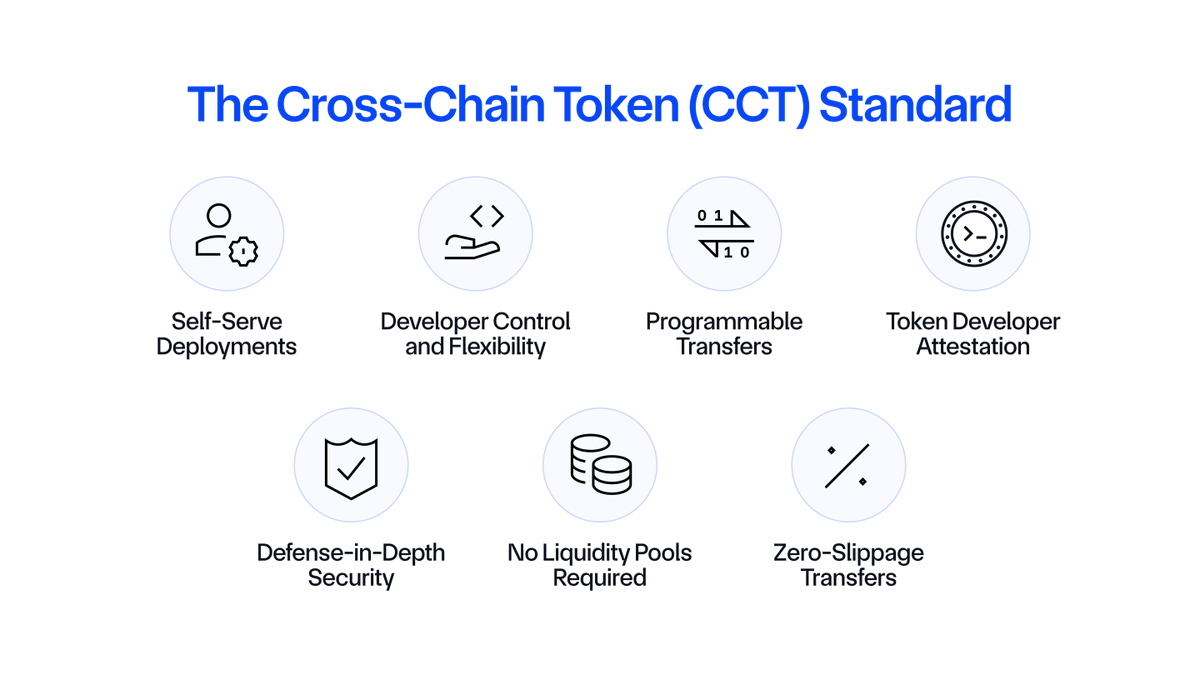Chainlink

@JasmineDeFiDev Not mutually exclusive?
An under-recognized advantage of @Chainlink CCIP for asset issuers is the ability to retain full control over your cross-chain tokens
There's no need to compromise on sovereignty when maximizing security, you can actually achieve both:
No Vendor Lock-In
Unlike some cross-chain providers, which vendor locks issuers through proprietary token standards that makes it difficult to switch, CCIP was designed to eliminate vendor lock-in
Issuers do not need to embed CCIP-specific code into their token contracts or adopt proprietary standards, they can just grant CCIP burn/mint authority over their existing token contract to enable cross-chain transfers
This means issuers are free to revoke these burn/mint privileges at any time to sever the tie to CCIP, and are not left with any residual CCIP code in their token contract that would limit future optionality
The Cross-Chain Token (CCT) standard enabled by CCIP is not a proprietary standard, it just a term that describes tokens that use CCIP for cross-chain transfers
Self Ownership
With CCIP, issuers own all instances of their token contract and CCIP token pool deployments across every blockchain they choose to make their token available on
CCIP tokens pools are the interface between the token contract and CCIP, which defines the token transfer mechanism that should be used when moving assets cross-chain (e.g., burn-and-mint or lock-and-mint transfers)
Because token pools are external to the CCIP protocol, and within full control of the issuer, that means they are not locked into CCIP if they decide to switch providers at any point in the future
There's also no concern with CCIP controlling your token contract or anything of the like, issuers lose not sovereignty over their tokens
Custom Token Pools
To enable teams to easily support CCIP for cross-chain transfers of their token, Chainlink built and offers multiple pre-audited token pool contracts that issuers can deploy (e.g., for standard ERC20 tokens)
However, CCIP is agnostic to the underlying logic that the token pool uses, as long as it follows an expected interface
Maybe you have a yield-bearing rebasing token whose accounting logic is different than a regular ERC20, you can create a custom token pool to account for that
Maybe you need some additional allowlisting capability for regulatory compliance, that can be incorporated at the token contract level, as well as at the token pool level
Token Developer Attestation
Probably the most powerful CCIP feature introduced recently is the Token Developer Attestation which allows issuers to directly participate in the cross-chain verification process
This feature introduces an additional security check in the cross-chain transfer process where issuers must attest to token burn/lock events on source chains before CCIP can mint/unlock tokens on destination chains
This provides issuers more tailored control over how their tokens move across chains, which is critical for ensuring issuers have full control over the issuance of tokens and complying with relevant regulations (in the case of tokenized assets)
CCIP is entirely agnostic to the verification logic that issuers decide to run, only requiring an Attestation API that CCIP can query to receive a cryptographic confirmation that is verified on destination chains
With this feature, you get a baseline level of security guarantees with CCIP, while retaining full sovereign control over your tokens
--
All of the above, along with other CCIP features I didn't mention, contribute to the fact that CCIP provides the highest level of cross-chain security, while maximizing asset issuer sovereignty
Did I mention deploying a cross-chain token with CCIP is also permissionless? Anyone can use all of these features today

37.35K
353
The content on this page is provided by third parties. Unless otherwise stated, OKX is not the author of the cited article(s) and does not claim any copyright in the materials. The content is provided for informational purposes only and does not represent the views of OKX. It is not intended to be an endorsement of any kind and should not be considered investment advice or a solicitation to buy or sell digital assets. To the extent generative AI is utilized to provide summaries or other information, such AI generated content may be inaccurate or inconsistent. Please read the linked article for more details and information. OKX is not responsible for content hosted on third party sites. Digital asset holdings, including stablecoins and NFTs, involve a high degree of risk and can fluctuate greatly. You should carefully consider whether trading or holding digital assets is suitable for you in light of your financial condition.

